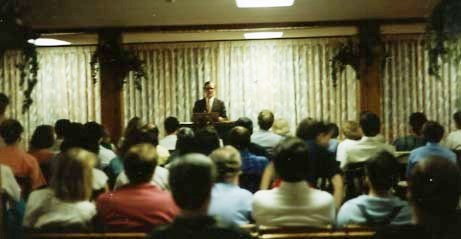Lectures by
Charlie Lutes:
- 55. From Physical to Spiritual
- 56. Prana
- 57. Prana and Apana
- 58. Real and Unreal
- 59. Who Am I?
- 60. Living the Good Life
- 61. Transmutation of the Sexual Force
- 62. The Relative and the Absolute
- 63. The Well of Life
- 64. The Way to Heaven is Through Hell
- 65. Happiness in Life
- 66. One Cannot Travel on Two Paths
- 67. Wealth and Spirituality
- 68. What We Really Are
- 69. Attachment and Detachment
- 70. Man Moving Toward Wisdom
- 71. The Road to Reason
- 72. The Meaning of Life
- 73. The Unfoldment of a Spiritual Life
- 74. Virtue
- 75. Perfection of the Mind
- 76. The New Mind
- 77. Soul Mates
- 78. Morality Versus Spirituality
- 79. Rebirth
- 80. The Maya of Life
- 81. Human Evolution
- Additional Lectures
- Home
Lectures by
Charlie Lutes

This is a time when human thought manifests in a preponderance of negativity and destruction, and those engaged in this type of thinking have very little control over their thoughts. They are caught up in a mad rush toward destruction. The outcome of this type of thinking is determined by whether, in the sum of human thinking, the good shall outweigh the bad. This is determined, not by the quantity of the thinking, but rather by the quality. The thoughts of the majority of humanity are of the senses and do not carry the light of divine Intelligence.
If, in the future, there comes a point where the thinking becomes so negative as to make recovery or balance in nature impossible, then the divine Intelligence calls forth the God of fire, or the God of water, to give humanity what their thinking has called for, and mass destruction of this earth begins. Volcanic action cracks the earth's crust open and the crust then breaks up and begins to sink and the water covers the earth and a large segment of humanity is removed from earth; then, a new land mass rises to the surface to support a new civilization that conforms to the laws of nature and who loves God. This is not wholly necessary if humanity will only change their ways and turn to God and start supporting nature. However, in the main, the opposite is occurring.
The spiritual path is referred to as the razor’s edge, or the narrow way. The reason for this is that, as we progress along the spiritual path, right and wrong comes very close together. What is right for one moment may be wrong for the next moment. So, our faculties must become increasingly more highly honed to properly guide us under all circumstances and keep us from doing what is nearly right, which is wrong. As the Upanishad says, “As hard as it is along a razor’s edge to fare, so hard is it to tread the path, the wise declare.” This simply means that, in order for us to retain our balance along the path, we must develop qualities of a higher and higher nature to stabilize ourselves.
Along the path we must have perfect assurance and a total loss of fear. It is said that one must be: firm and consistent without being rigid and inflexible; be self-respecting without being arrogant; be humble without being abject; be generous without being foolish; be thrifty without being miserly. This is the spiritual path. The qualities we must have are patience, aspiration, being intellectual, perseverance, diligence, being unyielding, determination, good fellowship, self-respect, universal love, and efficiency. Also, along the path we must hone the following qualities to a fine edge: self-confidence, fortitude, integrity, equanimity, forbearance, detachment from possessions, and humility.
The only real security that we can find in life comes from being on the spiritual path. Everyone is seeking security. However, most seek it in money, dependence on others, and on other things outside of themselves. The real lack of security comes from our attachment to our karma. It says in the Bhagavad Gita, “Therefore always do in detachment the essentials of karma, for by doing karma in detachment one reaches the supreme.” The more we detach ourselves from karma the greater is our security from the trials and tribulations that karma subjects us to.
Most humans conform to the law or principle of good behavior, not because they desire to do so, but because of fear of punishment. One on the spiritual path develops an inner quality of goodness that creates in them a desire to support nature and not run contra to the laws of nature. They are very aware of karma and they desire to create good karma through all of their thinking, speaking and doing. This is what is called, living the good life, for good does come to the good and evil comes to those who create evil. This is due to the law of cause and effect and we should always remember this at all times. If we choose the low path in life we inherit the low, and if we walk the high path, we receive the light of God and his blessings. It is for us to choose, and we have the free will to do so.
© 2005-2011 by Vincent J. Daczynski. All Rights Reserved.